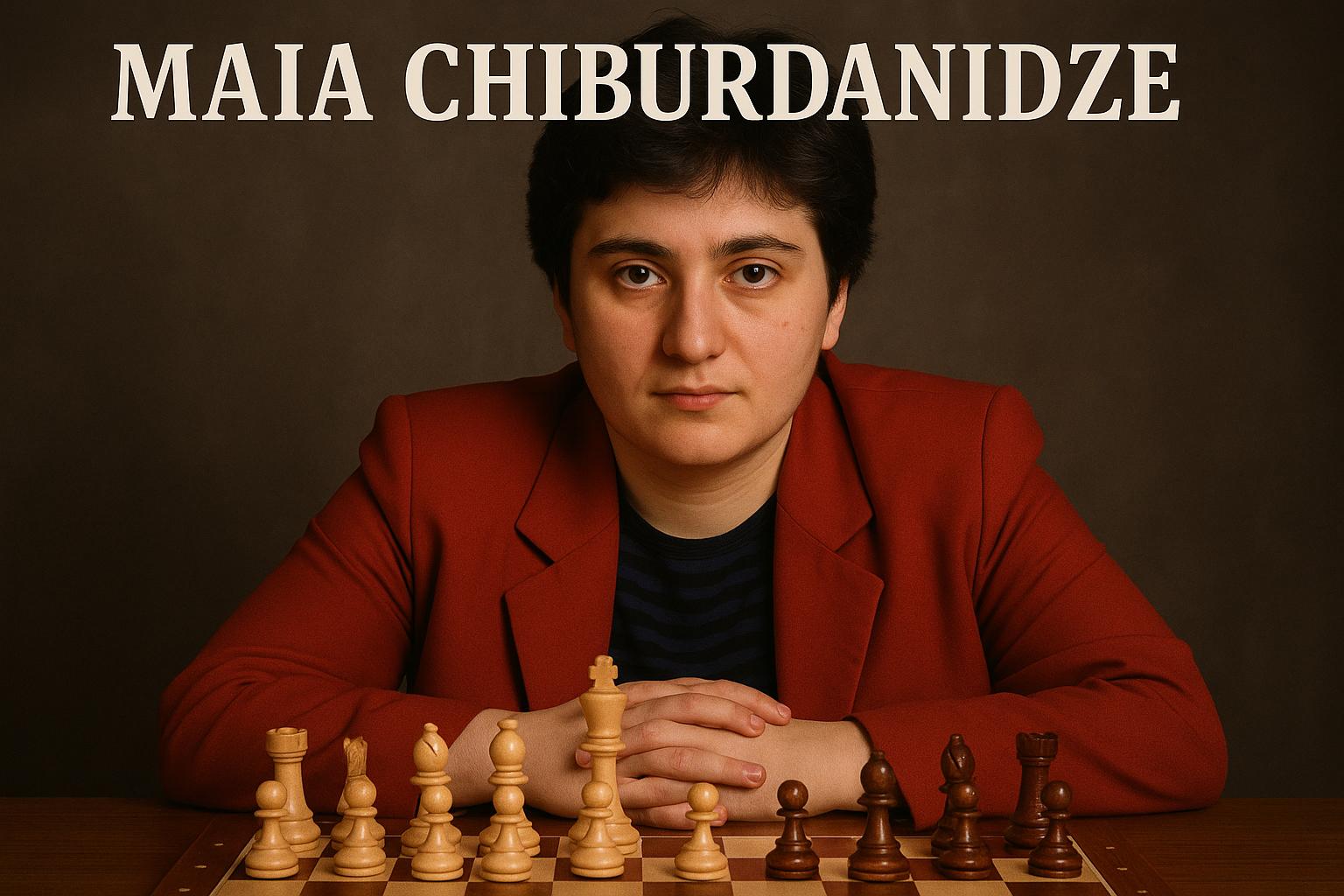Contents
Early Life and Chess Beginnings
Born on January 17, 1961, in the historic city of Kutaisi, Georgia, Maia Chiburdanidze demonstrated remarkable prowess in chess from an exceptionally young age. Her prodigious talent didn’t go unnoticed by her parents, who played a crucial role in nurturing her skills. At just eight years old, Maia was already delving into the complexities of chess, a discipline that would later define her life and career. Her childhood was marked by a rapid ascent in the world of chess, swiftly moving through various levels of competition. By the time she was 13, Maia had already engraved her name in the annals of national chess by becoming a formidable participant in national competitions. Her early achievements not only highlighted her extraordinary skills but also set the stage for her illustrious career.
World Champion
The pinnacle of Chiburdanidze’s early career came in 1978 when she etched her name into the history books by winning the Women’s World Chess Championship. At just 17 years of age, she achieved this incredible feat, making her the sixth woman ever to hold this prestigious title. Her victory signaled the beginning of an exciting new chapter in chess, as she ended the 16-year reign of the former champion, Nona Gaprindashvili. At the time of her victory, Maia became the youngest female world champion, a benchmark for excellence that stood unchallenged until 2010 when it was surpassed by Hou Yifan. Chiburdanidze’s win was not only a personal triumph but also a significant moment in the world of chess, heralding the arrival of a new generation of female chess players who were ready to challenge norms and break records.
Chess Style and Influence
Maia Chiburdanidze is lauded for her unique playing style, which sets her apart from many of her peers. Her approach to chess is renowned for its exceptional strategic depth and a profound understanding of the game. Her style is best described as patient and methodical, with each of her moves thoughtfully calculated to explore and exploit even the most subtle of advantages. Chiburdanidze’s victories are often marked by meticulous planning and strategic foresight, allowing her to outmaneuver her opponents gradually. Her distinctive style has had a lasting impact on the chess community, particularly in promoting a shift from pure tactical maneuvers to a more nuanced, strategic approach. Maia’s influence extends beyond her own generation, as she has been a source of inspiration for countless players, encouraging a strategic focus that has become more prevalent in today’s game.
Later Career and Contributions
After relinquishing her World Championship title in 1991 to Xie Jun, Maia Chiburdanidze continued to make significant contributions to the world of chess. Far from fading into obscurity, she remained a formidable player on the international circuit, participating in numerous tournaments and championships. Her ability to consistently perform well in these competitive settings speaks volumes about her enduring skill and tenacity. Chiburdanidze frequently played on equal footing with male players, often challenging and defeating some of the top names in the sport. Beyond the competitive arena, Maia has dedicated much of her time to fostering the growth of chess, particularly among the youth. She has been actively involved in promoting the game in her native Georgia, where she inspires and mentors young talents. Her efforts have significantly contributed to the popularization of chess, ensuring that her legacy is felt not only through her personal achievements but also through the generations of players she has inspired.
Legacy and Impact
Maia Chiburdanidze’s legacy in the chess world is both profound and enduring. She is esteemed not only for her outstanding achievements as a player but also for her unwavering commitment to the advancement of women’s chess on a global scale. As a pioneering force, Maia has paved the way for future generations of female chess players, offering inspiration and a role model for those aspiring to excel in a field traditionally dominated by men. Her influence is particularly significant in elevating the status and perception of women in chess, proving that gender is no barrier to success at the highest levels of the game. For those interested in exploring more about Maia Chiburdanidze’s career and ongoing contributions, her official FIDE profile provides valuable insights. Additionally, her engagement with various chess organizations worldwide continues to highlight her indispensible role in the chess community, making her a figure of great respect and admiration.

